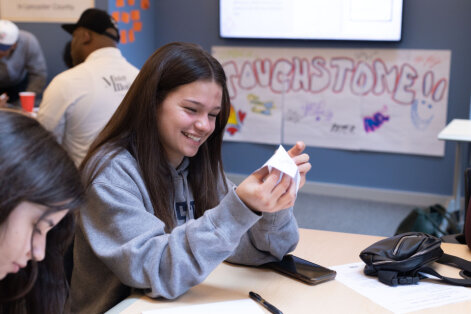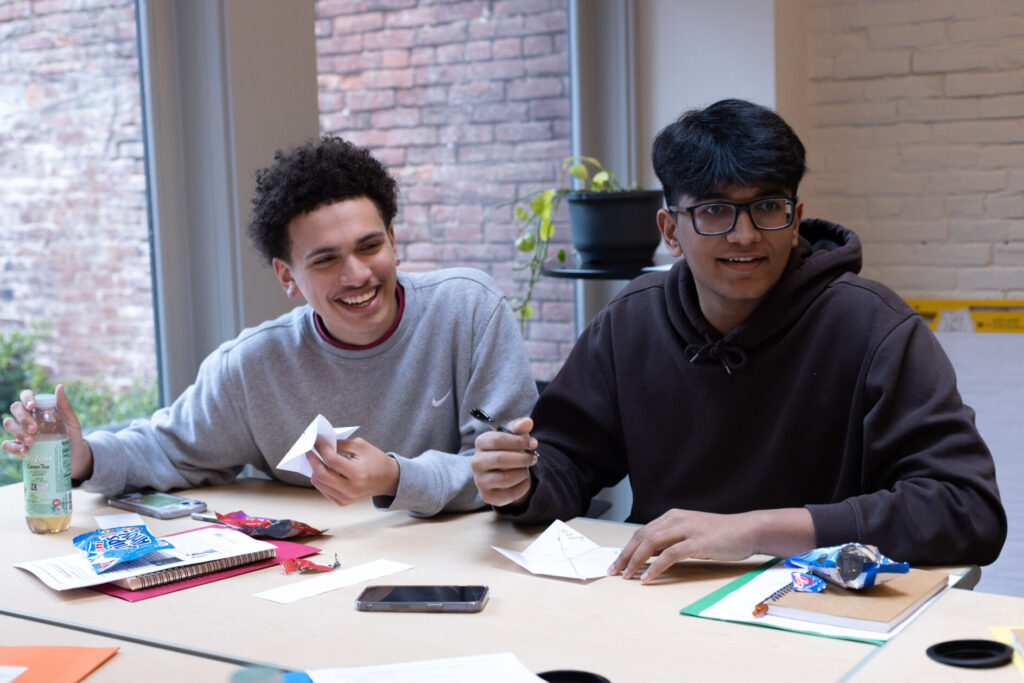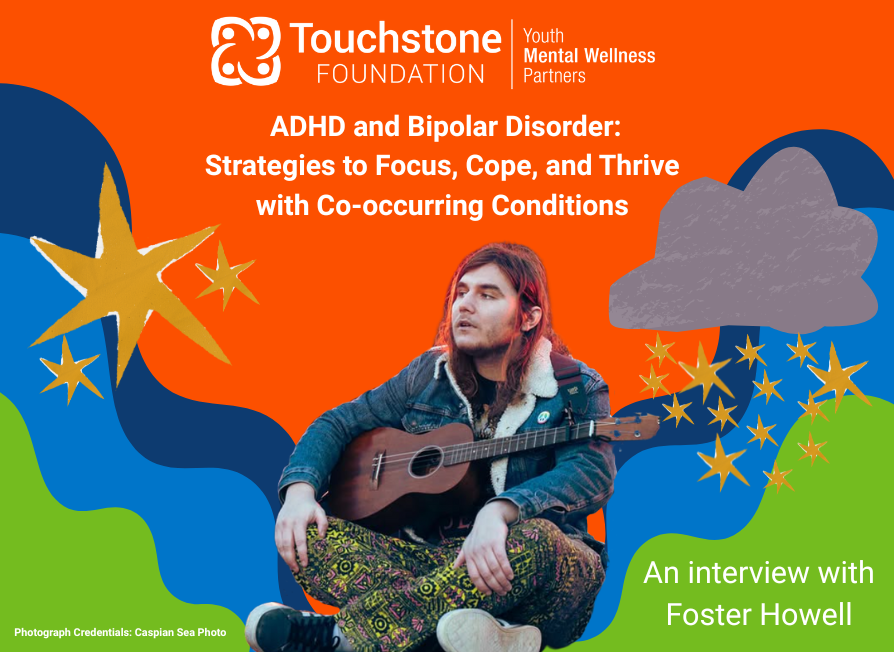Why is educating our kids on mental health so important?
Recent data from the CDC shows key improvements in youth mental health between 2021 and 2023, signaling positive progress in the fight for better student well-being:
- The percentage of students experiencing persistent feelings of sadness or hopelessness decreased from 42% to 40%.
- Female students saw a decline in persistent sadness or hopelessness (from 57% to 53%) and suicidal thoughts (from 30% to 27%).
- Hispanic students reported declines in persistent sadness (from 46% to 42%), poor mental health (from 30% to 26%), suicidal thoughts (from 22% to 18%), and suicide planning (from 19% to 16%).
- Black students saw a significant decrease in suicide attempts (from 14% to 10%) and injuries resulting from suicide attempts (from 4% to 2%).
These improvements highlight the effectiveness of ongoing awareness and mental health education efforts. Yet, the data also reveals persistent concerns:
- Threats or injuries with weapons at school increased (from 7% to 9%).
- Bullying at school rose from 15% to 19%.
- The percentage of students missing school due to safety concerns jumped from 9% to 13%.
- Female and LGBTQ+ students remain disproportionately affected by violence and poor mental health, with nearly 30% of LGBTQ+ students bullied at school and 20% attempting suicide in 2023.
Kathleen Ethier, Ph.D., Director of the CDC’s Division of Adolescent and School Health, emphasized, “These data show that we’ve made some progress, which proves these issues are not insurmountable. However, there’s still much work ahead.”
Schools play a vital role in addressing these challenges, fostering a supportive environment, and promoting mental well-being. Continued investment in mental health education is critical to reducing stigma, supporting students’ mental health, and ensuring safe, inclusive learning spaces for all young people.

Breaking the Stigma Around Mental Health Through Education
Mental health has long been burdened by stigma, casting it in a negative light and making open discussions seem taboo. This societal perception forces individuals to hide their struggles, avoiding conversations about mental health issues. Stigma manifests in three distinct forms: public stigma, self-stigma, and structural stigma.
- Public stigma refers to the widespread misconceptions and judgments held by society about mental health.
- Self-stigma is the internalization of these negative beliefs by individuals, leading them to feel ashamed or unworthy when facing mental health challenges.
- Structural stigma appears in institutional settings, such as schools and government policies, which may limit access to mental health care and resources.
However, these stigmas do not reflect the true nature of mental health. It is a fundamental component of overall well-being and deserves open dialogue and support. Mental health education plays a pivotal role in fostering understanding, empathy, and action.
The Importance of Psychoeducation
MedCircle points out in their article that Psychoeducation, a key element of mental health education, involves teaching people about the risk factors, symptoms, and causes of various mental health conditions. This education can be tailored for different audiences:
- Employers, educators, and healthcare workers may require specific information relevant to their environments.
- Children and teens often benefit from age-appropriate, relatable language.
For example, accurate psychoeducation about depression might include:
- Common symptoms (persistent sadness, fatigue, changes in sleep or appetite)
- Risk factors (family history, trauma, stress)
- When to seek help
Debunking Mental Health Myths
Despite progress, harmful misconceptions persist, including:
- “Mental illness isn’t real; it’s all in your head.”
- “Therapy is only for ‘crazy’ people.”
- “People with anxiety or depression just need to get over it.”
- “Medication is only necessary for severe cases.”
- “If someone talks about suicide, they might become more likely to act on it.”
By addressing these myths and encouraging open conversations, psychoeducation helps break down barriers and empowers individuals to seek help without shame.
Citation: MedCircle. (n.d.). Debunking common mental health myths. Retrieved from MedCircle
Creating a Supportive Culture
Promoting mental health discussions within families, schools, and communities fosters understanding and empathy. When we dismantle stigma, we encourage people to seek care, recognize symptoms early, and support one another.
Prioritizing mental health education is not only beneficial but essential to creating a society where mental well-being is valued, respected, and actively supported. Through open conversations and psychoeducation, we can build a stronger, healthier community.

How to get educated on mental health
Educating children about mental health is a pivotal step in starting an open dialogue on the topic. It doesn’t have to be overly complicated; it starts with educating yourself. Ensure you’re well-versed in the facts surrounding mental health and actively work to dispel any lingering stigmas.
Next, initiate discussions. These conversations can be formal or informal, involving more than one participant and focusing on various aspects of mental health. You might share personal experiences with mental health struggles, discuss someone close to you who has faced challenges, or keep the conversation more general.
Some topics to get you started:
- Risk factors and symptoms of mental illnesses
- The different mental illnesses
- Treatment options
- Name people you can talk to about mental health
- Talk about things that improve your mental health
- Talk about things that lower your mental health
When engaging in these discussions, it’s vital to understand the roles of support and advocacy. Emphasize the validity of everyone’s feelings within the group, and actively listen as a supportive listener. Nodding, showing engagement, and providing a safe space for expression can empower individuals to open up and share their experiences.
Above all, convey the message that it’s perfectly normal and acceptable to talk about mental health. Encourage children to recognize that experiencing both good and bad days is a natural part of life, and discussing their emotions can prevent feelings from being bottled up. By fostering this understanding, we empower our children to navigate their mental well-being with confidence and seek support when needed.
Rise Above Youth Summit

The Rise Above Youth Summit, a cornerstone initiative focused on educating students within the community, stands as a beacon in Lancaster County. Spearheaded by The Touchstone Foundation in collaboration with the YWCA and Hood Hippie Love Yourself, this program aims to empower students by equipping them with essential skills and linking them with vital mental health resources in the area.
Scheduled for a four-week duration this summer, the program promises an enriching experience for participants, with each completing student eligible for a $500 stipend. Over the course of these four weeks, students delve into various topics and themes surrounding mental health, facilitated by local artists who engage them in interactive activities. In the program, students learn about mental health from different perspectives.
Participants benefit from insightful discussions, discover available community resources, and are provided with a nurturing environment conducive to exploring and comprehending mental health resources.




